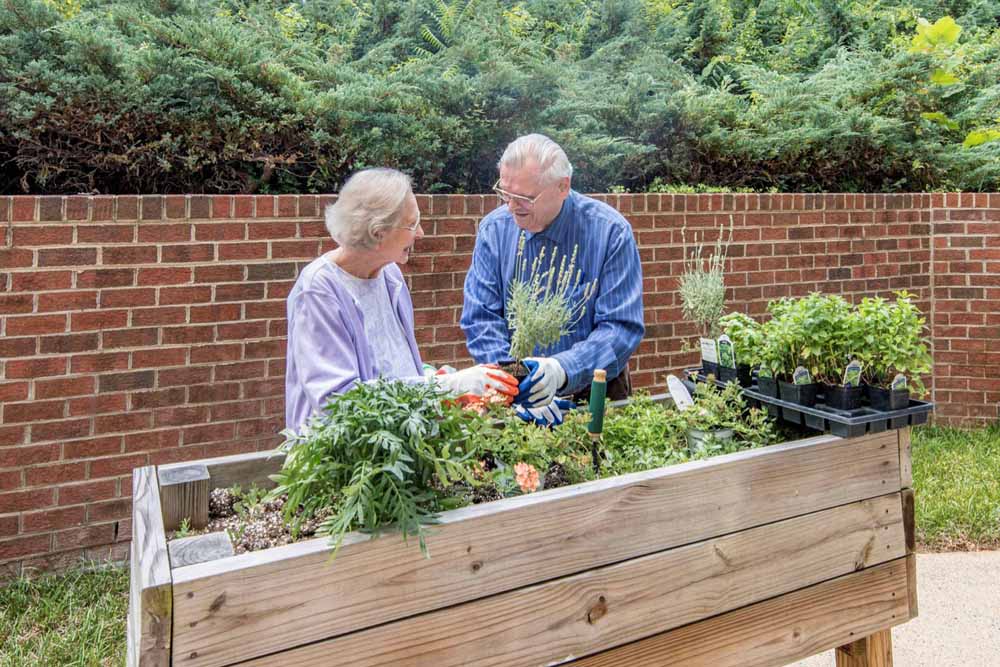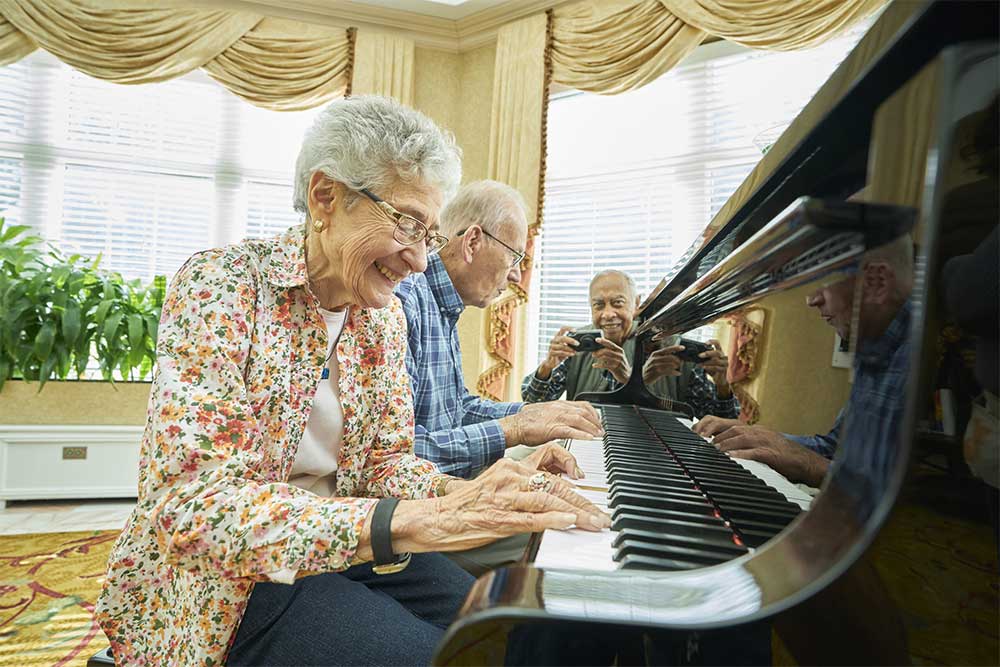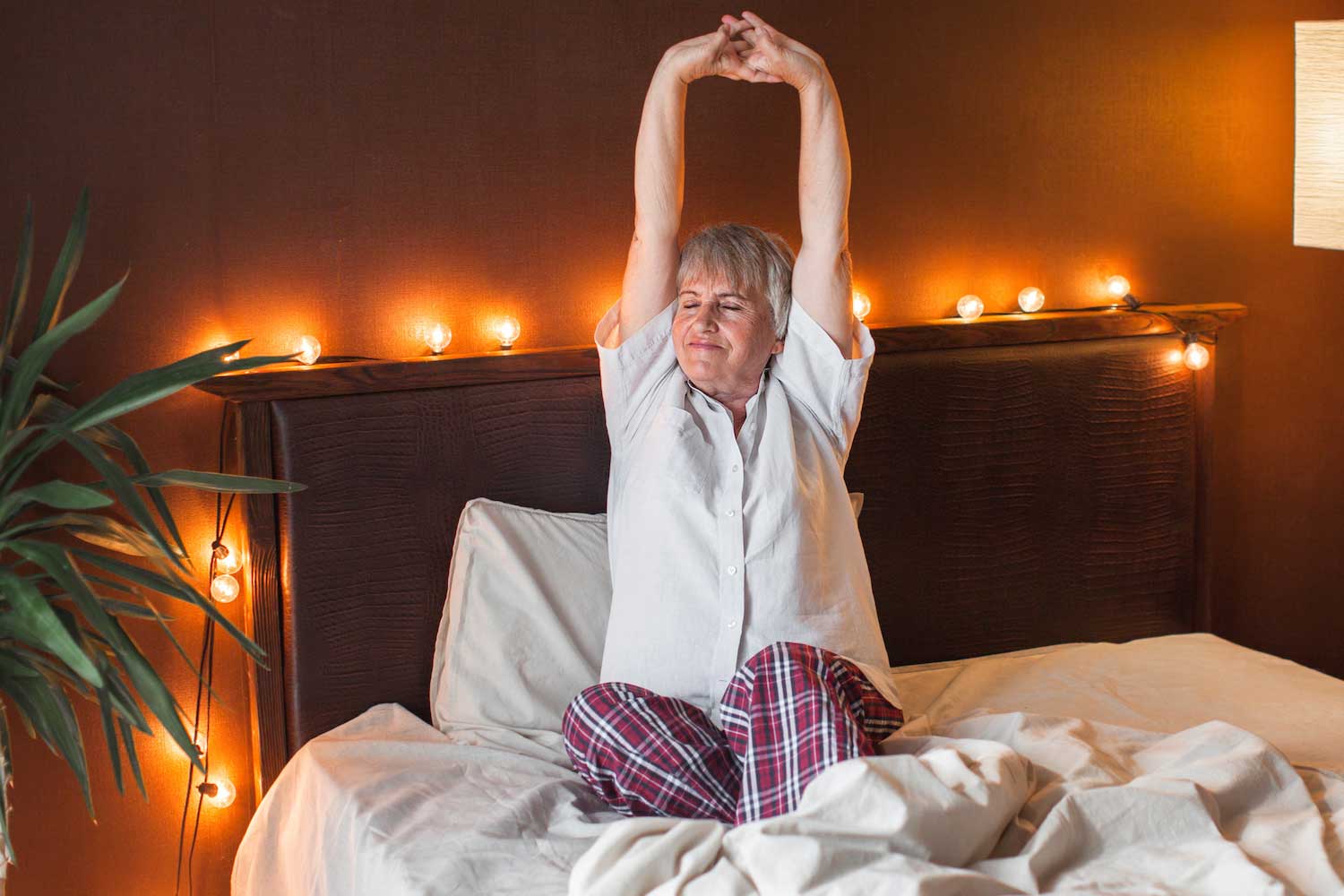Spending time in nature is one of the most natural and effective ways to boost well-being. Research has consistently shown that outdoor environments profoundly benefit mental health, from reducing stress to enhancing cognitive function. For seniors, incorporating nature into daily routines can lead to a healthier, happier aging experience.
In This Article
- How Does Nature Improve Mental Health?
- 3 Physical Activities in Nature That Benefit Mental Health
- How Senior Living Communities Support Nature Access
How Does Nature Improve Mental Health?
Whether it’s a short walk in the park, tending to a garden, or simply enjoying the fresh air from a balcony, the mental health benefits of nature for older adults are undeniable. Spending time in natural surroundings does more than just provide a change of scenery. It actively supports emotional and psychological well-being. Here’s how:
Reduces Stress & Anxiety
Nature has a calming effect on the mind. Studies show that being in green spaces, whether walking through a park or sitting in a garden, can lower cortisol levels, which is also called stress hormone. The fresh air, soothing sounds of birds, and gentle rustling of leaves all contribute to a sense of relaxation.
If you’ve experienced stress due to life changes, spending time outside can help reduce anxiety and promote emotional balance.
Boosts Mood & Happiness
Exposure to sunlight and natural surroundings has been linked to increased serotonin and dopamine levels, the neurotransmitters responsible for happiness and emotional well-being. Sunlight stimulates vitamin D production, which plays a crucial role in mood regulation.
According to research, people who spend more time outdoors report feeling happier, more relaxed, and less overwhelmed. If you engage in even small outdoor activities, like sitting on a patio or enjoying a morning walk, you can significantly improve your mood and even outlook on life.
Enhances Cognitive Function
Nature isn’t just beneficial for emotional well-being; it also supports brain health. Studies have shown that time spent in natural environments can improve memory, attention span, and problem-solving skills.
Research published in the Nature Journal found that older adults who regularly engage with nature experience slower cognitive decline compared to those who spend most of their time indoors. Green spaces also provide mental stimulation, encouraging mindfulness and curiosity.
Whether it’s identifying different bird species, tending to plants, or simply observing the changing seasons, these activities help keep the brain engaged and sharp.
Creates Opportunities for Socialization
Loneliness and isolation are common challenges among older adults, but nature can serve as a social bridge. Research from the American Psychological Association highlights that shared outdoor experiences foster stronger social bonds and reduce feelings of loneliness. Parks, gardens, and outdoor seating areas provide inviting spaces to meet with friends, chat with neighbors, or participate in group activities.
3 Physical Activities in Nature That Benefit Mental Health
Spending time outdoors doesn’t have to be strenuous to be beneficial. Here are three enjoyable and accessible activities that promote both physical and mental well-being for older adults:
1. Walking & Light Exercise
Whether strolling through a neighborhood, along a lake, or on a nature path, walking is one of the easiest and most effective ways to experience the mental health benefits of spending time outdoors. Walking improves circulation, increases endorphin levels, and boosts energy.
Set a comfortable pace and feel free to stop and rest as needed. This is not a race, the reward is getting outside.
2. Gardening
Gardening is a therapeutic activity that combines gentle movement with sensory stimulation. The act of planting, watering, and nurturing plants provides a sense of purpose and accomplishment. Gardening has been linked to reduced stress, improved mood, and enhanced cognitive function. It also encourages mindfulness—focusing on the present moment—which can help alleviate anxiety and depressive symptoms.
Container gardening on a balcony or tending to indoor plants can offer similar mental health benefits even if space is limited. Plant stands and raised gardening beds are also great options for individuals who have difficulty kneeling or bending over.
3. Birdwatching & Wildlife Observation
Birdwatching is a peaceful and fun way to connect with nature. Observing birds, listening to their songs, and recognizing different species supports visual and auditory processing, problem solving, and memory. It also encourages mindfulness and a sense of wonder. Recent studies found that people who engage in birdwatching experience reduced stress and increased happiness.
For older adults, birdwatching can be done from a backyard, balcony, or nearby park, making it an accessible and fulfilling hobby. Grab a guide to get started or download a bird ID app like Merlin or eBird to identify and track sightings.
How Senior Living Communities Support Nature Access
Many senior living communities are thoughtfully designed with safe, welcoming outdoor spaces that encourage social interaction and a deeper connection with nature. At Five Star Senior Living, we recognize the vital role outdoor environments play in mental well-being. That’s why our communities offer a variety of nature-inspired amenities, including walking trails, gardens, outdoor seating, balconies, pools, fishing piers, recreational courts, scenic vistas, wellness and social activities.
If you’re looking for a community that prioritizes mental and physical health, consider visiting a Five Star Senior Living community near your to explore its beautiful grounds, engaging amenities, and Life Enrichment programs. Schedule a tour today!
Contact Us Today
"*" indicates required fields










